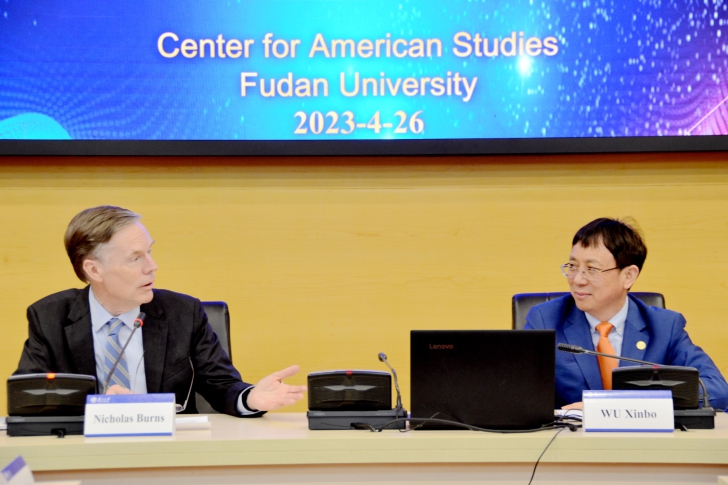China's Enduring Strength: Xi's Vision For A Protracted Conflict With Trump's Legacy

Table of Contents
Xi Jinping's Strategic Vision for Long-Term Growth
Xi Jinping's leadership has been defined by a strategic vision focused on long-term economic growth and national security, designed to navigate the challenges posed by a rising superpower rivalry. This vision manifests in two key areas: economic resilience and strengthened national security.
Economic Resilience and Self-Reliance
Facing Trump's trade tariffs and escalating technological decoupling, China has doubled down on economic self-reliance. The "Made in China 2025" initiative, aimed at technological independence, exemplifies this shift. This ambitious plan focuses on upgrading domestic industries, particularly in high-tech sectors like semiconductors and artificial intelligence.
- Massive investment in semiconductor manufacturing: China is pouring billions into building its own chip industry, reducing dependence on foreign suppliers.
- Development of 5G technology and infrastructure: China's aggressive rollout of 5G networks demonstrates its commitment to technological leadership.
- Emphasis on domestic consumption: China's expanding middle class is a key driver of economic growth, reducing reliance on exports.
These policies, while facing significant hurdles, demonstrate a clear commitment to economic self-reliance and a reduced vulnerability to external pressure, a crucial element in Xi Jinping's vision for enduring strength in a protracted conflict.
Strengthening National Security and Military Capabilities
Simultaneously, Xi Jinping has overseen a significant expansion of China's military capabilities and a more assertive foreign policy. This is viewed by many as a direct response to perceived threats stemming from the Trump administration's confrontational approach.
- Increased military spending: China's defense budget has steadily risen, allowing for modernization of its armed forces, including development of advanced weaponry.
- Assertive actions in the South China Sea: China's increased presence and construction of artificial islands in the South China Sea highlight its ambition to project power in the region.
- Expansion of its global reach: China's Belt and Road Initiative aims to enhance its global influence and build strategic partnerships.
These actions, while causing concern in many Western capitals, reflect Xi's determination to secure China's national interests and project its power on the global stage, crucial elements in navigating a protracted conflict.
Trump's Legacy: A Catalyst for China's Consolidation
Ironically, the policies of the Trump administration, intended to constrain China, have inadvertently strengthened its resolve and accelerated its strategic goals.
The Trade War and its Unintended Consequences
The trade war initiated by the Trump administration, while inflicting some economic pain, ultimately served as a catalyst for Chinese innovation and self-reliance. Instead of succumbing to pressure, China accelerated its efforts to develop domestic alternatives and reduce its dependence on the US market.
- Forced technological innovation: The trade war spurred investments in domestic technology, accelerating the development of key sectors.
- Diversification of trade partners: China deepened its economic ties with other countries, reducing its reliance on the US.
- Increased national unity: The trade war fostered a sense of national unity and resolve in the face of external pressure.
The outcome was far from the intended effect of the Trump administration's actions, inadvertently strengthening China's resilience in the long run.
Heightened Geopolitical Tensions and the Rise of Strategic Competition
Trump's confrontational approach toward China, characterized by trade wars, technological decoupling, and assertive rhetoric, exacerbated existing geopolitical tensions. This prompted China to actively consolidate its strategic partnerships and pursue alternative global alliances.
- Strengthened relationships with Russia: China and Russia have deepened their strategic partnership, challenging the US-led global order.
- Expansion of the Belt and Road Initiative: This ambitious infrastructure project aims to enhance China's influence in developing countries and create alternative trade routes.
- Growing influence in international organizations: China is increasingly active in multilateral institutions, challenging the dominance of Western powers.
This intensified competition, a direct consequence of Trump's legacy, has allowed China to further its long-term goals and establish itself as a more significant global player.
The Enduring Strength of the Chinese System
China's ability to navigate the challenges posed by Trump's legacy and consolidate its position stems, in part, from the inherent strengths of its political system.
Centralized Decision-Making and Long-Term Planning
Unlike the US political system, which is often characterized by gridlock and short-term political cycles, China's centralized authoritarian system allows for swift and decisive action on long-term strategic goals.
- Efficient implementation of economic plans: China's centralized structure enables rapid implementation of economic policies and large-scale infrastructure projects.
- Long-term strategic vision: Xi Jinping's focus on long-term goals allows China to withstand short-term setbacks and maintain strategic focus.
- Coordination across government and industry: The centralized system allows for effective coordination between government agencies and private companies.
Social Control and Public Opinion Management
The Chinese government's capacity for social control and public opinion management allows it to maintain social stability and unity amidst economic challenges and geopolitical tensions.
- Censorship and control of information: The government restricts access to information that could undermine its authority or create social unrest.
- Propaganda and nationalistic messaging: The government utilizes propaganda to shape public opinion and foster national unity.
- Robust surveillance mechanisms: The Chinese government employs extensive surveillance technologies to monitor and control its citizens.
This capacity to manage dissent and maintain social order, however controversial, contributes to China's ability to weather storms and pursue its long-term vision.
Conclusion
Xi Jinping's vision for China's future, coupled with the unintended consequences of Trump's legacy, has solidified China's position in the ongoing protracted conflict with the United States. China's enduring strength is rooted in its economic resilience, its growing military capabilities, its centralized political system, and its capacity for social control. Understanding Xi's vision and the implications of this protracted conflict for the global order is crucial. Analyzing China's enduring strength in the face of a protracted conflict requires further investigation into the evolving dynamics of US-China relations and their impact on global governance. We encourage readers to explore these complex issues further and continue analyzing Xi Jinping's vision for a protracted conflict with the US. Further research on topics such as the Belt and Road Initiative and the future of technological competition will provide deeper insight into this crucial geopolitical struggle.

Featured Posts
-
 Ryujinx Emulator Development Ceases After Nintendo Intervention
Apr 25, 2025
Ryujinx Emulator Development Ceases After Nintendo Intervention
Apr 25, 2025 -
 The New York Jets 2025 Nfl Draft Needs Available Picks And Best Fit Players
Apr 25, 2025
The New York Jets 2025 Nfl Draft Needs Available Picks And Best Fit Players
Apr 25, 2025 -
 Mgm Resorts Japanese Casino Project Ground Broken Despite Delays
Apr 25, 2025
Mgm Resorts Japanese Casino Project Ground Broken Despite Delays
Apr 25, 2025 -
 Montana Senate Control Democrats And Republicans Face Off
Apr 25, 2025
Montana Senate Control Democrats And Republicans Face Off
Apr 25, 2025 -
 South African Coalition Government Stalemate On Tax Increase
Apr 25, 2025
South African Coalition Government Stalemate On Tax Increase
Apr 25, 2025
Latest Posts
-
 Kreasi Meja Rias Modern And Sederhana Di Rumah Tren Desain 2025
Apr 25, 2025
Kreasi Meja Rias Modern And Sederhana Di Rumah Tren Desain 2025
Apr 25, 2025 -
 Inspirasi Desain Meja Rias 2025 Gaya Modern And Sederhana
Apr 25, 2025
Inspirasi Desain Meja Rias 2025 Gaya Modern And Sederhana
Apr 25, 2025 -
 Meja Rias Modern And Sederhana Ide Desain Terkini Untuk Rumah
Apr 25, 2025
Meja Rias Modern And Sederhana Ide Desain Terkini Untuk Rumah
Apr 25, 2025 -
 Desain Meja Rias Minimalis Modern 2025 Panduan Lengkap
Apr 25, 2025
Desain Meja Rias Minimalis Modern 2025 Panduan Lengkap
Apr 25, 2025 -
 The Ultimate Guide To Childproof Makeup Storage For Parents
Apr 25, 2025
The Ultimate Guide To Childproof Makeup Storage For Parents
Apr 25, 2025
